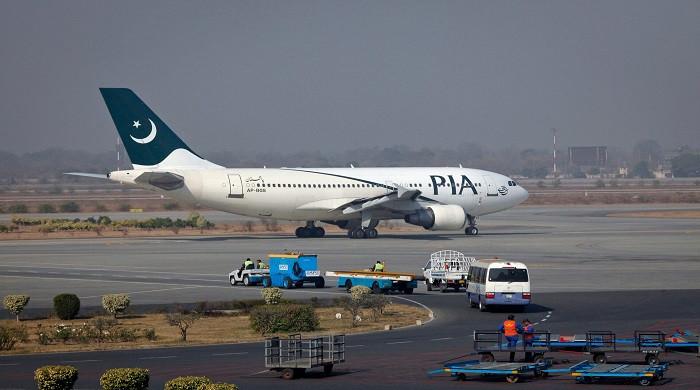PTI govt's delayed decisions cost people Rs404b: report
Imran Khan's govt missed four chances to prevent wheat crisis due to unnecessary reluctance in making decisions
October 28, 2020
The Imran Khan-led government’s delayed decisions to limit the wheat and sugar crisis caused a collective loss of Rs404 billion to the people, a report by Geo News’ Aaj Shahzeb Khanzada Ke Saath showed.
Wheat crisis
Data shows that the price of one kg wheat jumped from Rs39.40 in January 2019 to Rs48.40 a year later, leading people to pay an excess amount of Rs20 billion. A comparison February 2019 and 2020 showed a difference of Rs 14billion while March was at Rs11 billion, April at Rs12 billion, May at Rs11 billion.
People paid a whopping Rs25 billion in excess in June 2020 when the price increased from Rs40kg in 2019 to Rs51 this year. Analysis for July and August showed a difference of Rs20 billion and Rs 19 billion respectively while an increased amount of Rs16 billion was paid by the people in September 2020 when the price spiked from Rs43.30kg in 2019 to Rs50.45 last month.
In his show, Khanzada said the PTI government had four chances to contain the crisis through banning wheat export to avoid importing it at expensive rates but it frayed.
The first was when the government was informed that the wheat crops could not meet the target. The second was in May when the procurement could not be done according to the requirements, the third opportunity came in June when the government had decided to import wheat but it did not issue a notification of the judgment.
Lastly, the fourth was in July when the government had decided to give tax concession on imported wheat but the edible was not imported, causing serious surge in the wheat prices.
The price hike excessively burdened the people to the tune of Rs205 billion. Aaj Shahzeb Khanzada Ke Saath revealed that the annual consumption of wheat was 124 kilograms per capita, the monthly consumption was 10kg per capita, while the total population of the country was 220 million.
When the international market got wind of Pakistan’s inability to control the crisis and wanting to import at least 3 million tonnes of wheat, the price spiked from USD230 to USD280.
Pakistan, however, imported wheat at the rate of USD292 because of the volume of the order. It is pertinent to mention that Pakistan had exported wheat at the rate of USD210, while in the current fiscal year, Pakistan had been importing wheat at USD280.
The research report showed that the incumbent government paid an excess amount of USD62 per ton. It has already paid USD50 million in excess costing the national exchequer Rs9 billion. If the government hadn’t delayed its decisions, it may have been able to buy wheat for USD220-USD230.
Furthermore, due to subsidization, the government is buying wheat at Rs920 per 20kg wheat bag but providing it to the masses at Rs840 per 20kg bag.
Sugar crisis
On the sugar crisis, Khanzada said the government’s decisions caused a loss of Rs18.4 billion with the people paying an excess of Rs3.3 billion.
According to the research, the government failed to procure sugar despite the Sugar Commission report alerting them that the production of sugarcane would not meet the need. So far, Pakistan has imported 55,000 tonnes of sugar and plans to acquire another one million ton in a bid to bring down the price by Rs15.
The commission report estimated sugar price at Rs63.13 after subtracting profits and taxes leveled on sugar mills. But the government bought 2.1 million tonnes sugar at Rs83.50 from the sugar mills from December 2019 to July 2020. The government subsidy meant to provide relief to the public ended up as profits to the sugar mills.











